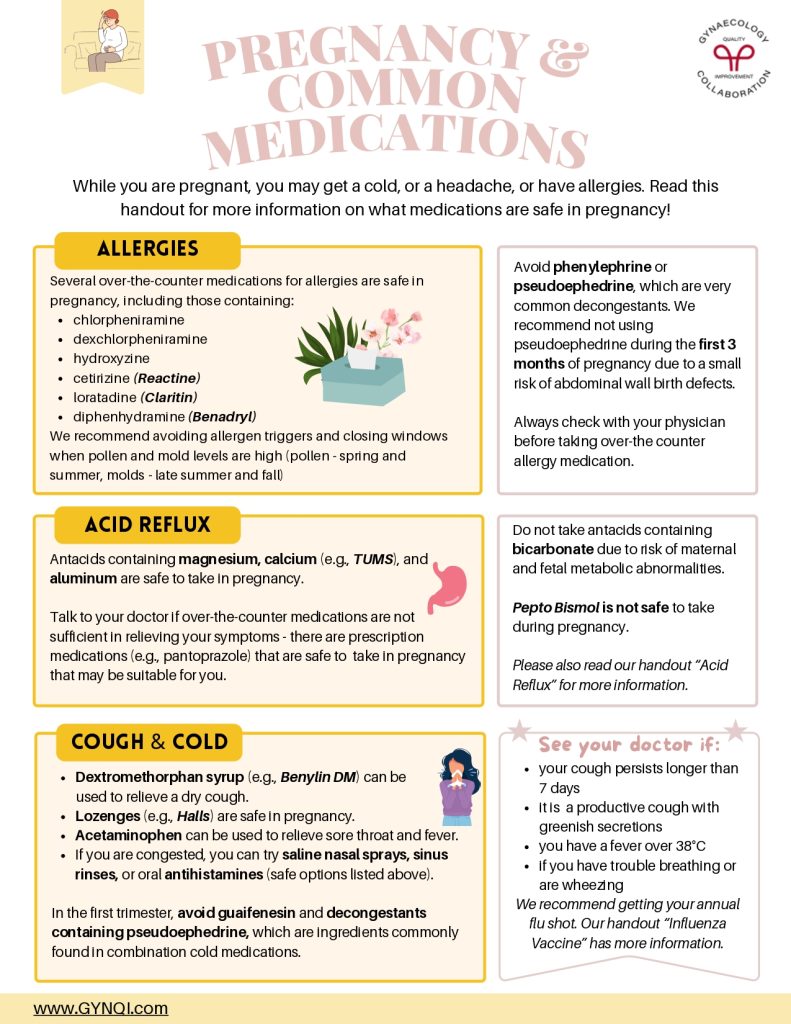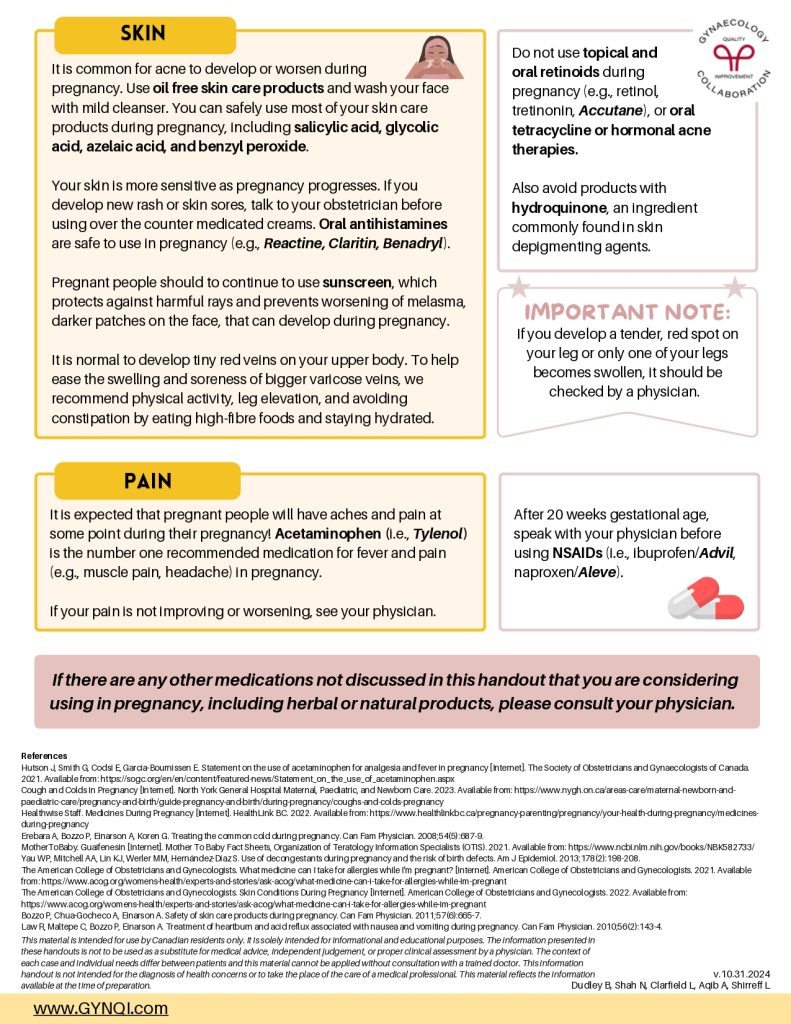
Pregnancy & Common Medications
While you are pregnant, you may get a cold, or a headache, or have allergies. Read this handout for more information on what medications are safe in pregnancy!
Allergies
Several over-the-counter medications for allergies are safe in pregnancy, including those containing:
- Chlorpheniramine
- Dexchlorpheniramine
- Hydroxyzine
- cetirizine (Reactine)
- loratadine (Claritin)
- diphenhydramine (Benadryl)
We recommend avoiding allergen triggers and closing windows when pollen and mold levels are high (pollen – spring and summer, molds – late summer and fall)/.
Avoid phenylephrine or pseudoephedrine, which are very common decongestants. We recommend not using pseudoephedrine during the first 3 months of pregnancy due to a small risk of abdominal wall birth defects.
Always check with your physician before taking over-the counter allergy medication.
Acid Reflux
Antacids containing magnesium, calcium (e.g., TUMS), and aluminum are safe to take in pregnancy.
Talk to your doctor if over-the-counter medications are not sufficient in relieving your symptoms – there are prescription medications (e.g., pantoprazole) that are safe to take in pregnancy that may be suitable for you.
Do not take antacids containing bicarbonate due to risk of maternal and fetal metabolic abnormalities.
Pepto Bismol is not safe to take during pregnancy.
Please also read our handout “Acid Reflux” for more information.
Cough & Cold
- Dextromethorphan syrup (e.g., Benylin DM) can be used to relieve a dry cough.
- Lozenges (e.g., Halls) are safe in pregnancy.
- Acetaminophen can be used to relieve sore throat and fever.
- If you are congested, you can try saline nasal sprays, sinus rinses, or oral antihistamines (safe options listed above).
In the first trimester, avoid guaifenesin and decongestants containing pseudoephedrine, which are ingredients commonly found in combination cold medications.
See your doctor if:
- your cough persists longer than 7 days
- it is a productive cough with greenish secretions
- you have a fever over 38°C
- if you have trouble breathing or are wheezing
We recommend getting your annual flu shot. Our handout “Influenza Vaccine” has more information.
Skin
It is common for acne to develop or worsen during pregnancy. Use oil free skin care products and wash your face with mild cleanser. You can safely use most of your skin care products during pregnancy, including salicylic acid, glycolic acid, azelaic acid, and benzyl peroxide.
Your skin is more sensitive as pregnancy progresses. If you develop new rash or skin sores, talk to your obstetrician before using over the counter medicated creams. Oral antihistamines are safe to use in pregnancy (e.g., Reactine, Claritin, Benadryl)
Pregnant people should to continue to use sunscreen, which protects against harmful rays and prevents worsening of melasma, darker patches on the face, that can develop during pregnancy
It is normal to develop tiny red veins on your upper body. To help ease the swelling and soreness of bigger varicose veins, we recommend physical activity, leg elevation, and avoiding constipation by eating high-fibre foods and staying hydrated.
Do not use topical and oral retinoids during pregnancy (e.g., retinol, tretinonin, Accutane), or oral tetracycline or hormonal acne therapies. Also avoid products with hydroquinone, an ingredient commonly found in skin depigmenting agents.
Important Note: If you develop a tender, red spot on your leg or only one of your legs becomes swollen, it should be checked by a physician.
Pain
It is expected that pregnant people will have aches and pain at some point during their pregnancy! Acetaminophen (i.e.,Tylenol) is the number one recommended medication for fever and pain (e.g., muscle pain, headache) in pregnancy.
If your pain is not improving or worsening, see your physician.
After 20 weeks gestational age, speak with your physician before using NSAIDs (i.e., ibuprofen/Advil, naproxen/Aleve).
If there are any other medications not discussed in this handout that you are considering using in pregnancy, including herbal or natural products, please consult your physician.




